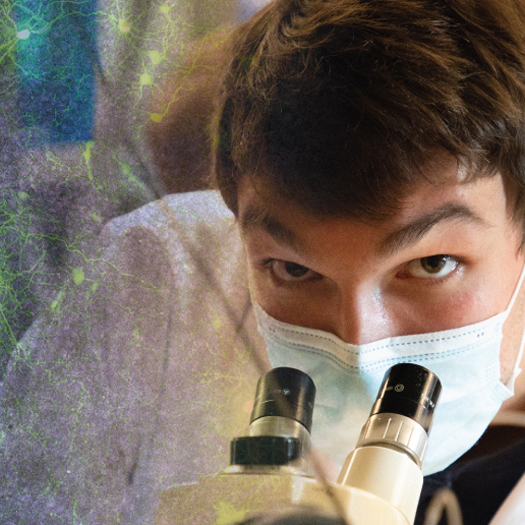Dual BS/MS Degree Timeline
Sophomore Year
- Students are encouraged to contact the BS/MS Program Director and learn more about the program and its requirements. In particular, students should examine the sample schedule to make sure they are on track to complete required coursework within the time frame of the program.
- Students are encouraged to explore research opportunities and meet with neuroscience faculty who are mentoring undergraduate and graduate student researchers.
Summer of Sophomore Year
- The Summer session following the completion of their Sophomore year is typically a good time to begin conducting research in a neuroscience program-affiliated laboratory.
Junior Year
Autumn of Junior Year
- Students must be majoring in Cellular & Molecular Neuroscience (or have completed the equivalent required coursework in the Cognitive & Behavioral track) and be on track to complete the required coursework with the time frame of the program.
- Students planning on applying to the BS/MS program must identify a mentor, research project and a study plan as part of their application. Consequently, students typically begin carrying out research in their mentor’s lab sometime during their Sophomore year. Continuing this research training during the Autumn semester is most often done through an “Independent Research” course (e.g., BMED 390, BIOB 390, BCH 390)
- Students must submit their application to the BS/MS program prior to end of the Autumn Semester of their Junior year.
Spring Semester of Junior Year
- Students should have submitted their application to the BS/MS program prior to end of the Autumn Semester of their Junior year.
- Students continue to pursue research training in a neuroscience program-affiliated laboratory. This is typically be done for course credit (e.g., BMED 390, BIOB 390, BCH 390: Independent Research)
- Applications are reviewed and students are notified as to their provisional acceptance into the program before the end of the Spring semester of their Junior year.
Summer of Junior Year
- BS/MS program students are expected to pursue research in their mentor’s lab during the Summer of their Junior year and assemble a graduate research committee. The research conducted during the summer does not need to be for credit.
Senior Year
During Senior Year
- The plan of study for BS/MS students in their Senior year will include between (13-16) credits of graduate coursework from the Neuroscience Graduate Program. Credits earned from these courses during their Fall and Spring Semesters will count toward BOTH their BS and MS degrees. Plans of study are approved by student’s research com
- BS/MS program students will apply to Neuroscience Graduate Program through the UM Graduate School during their Senior year and should receive notice of provisional acceptance.
End of Senior Year
- BS/MS students will receive their B.S. degree in Neuroscience at the end of their Senior year, pending the completion of the required coursework and credits. Credits from Neuroscience graduate courses taken during their Senior year (up to a maximum of 16) will be counted toward their B.S. degree.
Summer of Junior Year
- BS/MS students will continue to pursue research in their mentor’s lab during the Summer of their Junior Year.
Fifth Year
Fall Semester of 5th Year
- BS/MS students will formally be accepted into the Neuroscience MS graduate program with advanced standing for the Fall semester of their 5th year. (Students cannot be formally accepted into the graduate program without first completing their BS degree).
- Students will enter the Neuroscience Graduate Program in the Fall of their “5th” year with advance standing, having completed 13-16 credits of graduate coursework that will count toward their M.S. degree.
End of 5th Year
- During their “5th” year, students complete any necessary coursework and finish their research project with a written thesis and defense as approved by their graduate research committee, after which an M.S. degree in Neuroscience will be awarded
